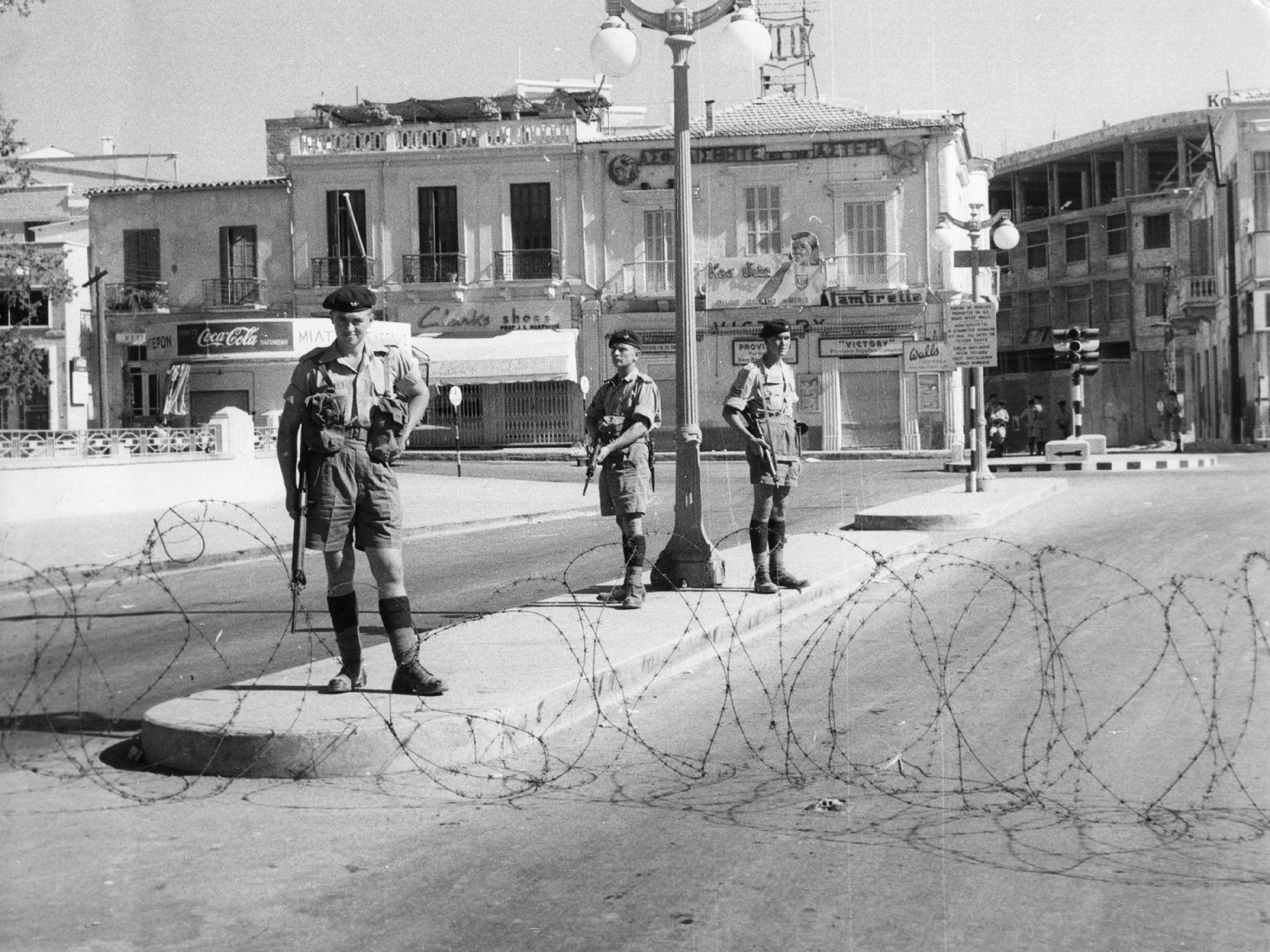UK pays £1m damages to Cyprus 'victims of rape and torture by British colonial forces'
Foreign minister says claim 'does not constitute any admission of liability'

Your support helps us to tell the story
From reproductive rights to climate change to Big Tech, The Independent is on the ground when the story is developing. Whether it's investigating the financials of Elon Musk's pro-Trump PAC or producing our latest documentary, 'The A Word', which shines a light on the American women fighting for reproductive rights, we know how important it is to parse out the facts from the messaging.
At such a critical moment in US history, we need reporters on the ground. Your donation allows us to keep sending journalists to speak to both sides of the story.
The Independent is trusted by Americans across the entire political spectrum. And unlike many other quality news outlets, we choose not to lock Americans out of our reporting and analysis with paywalls. We believe quality journalism should be available to everyone, paid for by those who can afford it.
Your support makes all the difference.A group of 33 Cypriots who claimed they were raped and tortured by British forces during an uprising to end colonial rule, will be paid a £1m settlement by the British government.
After being arrested on suspicion of being members of the paramilitary group Eoka more than 60 years ago, the group alleged they were beaten and raped while in custody.
Foreign minister Alan Duncan said the settlement “does not constitute any admission of liability” and does not set a “precedent” for any future claims gainst the British government.
But he said the government regretted the violence and loss of life which preceded Cyprus’ independence in 1960.
Thassos Sophocleous, head of an association of former fighters who waged a four-year armed campaign, said the 33 Cypriots interpreted the out-of-court settlement as an acknowledgement that they were tortured while in the hands of British authorities. Mr Sophocleous, 85, claims the beatings he received while in British custody for 17 days damaged his knees and fractured vertebrae.
The claimants, now in their 70s and 80s, launched their legal battle in 2015 after government documents detailing their treatment were declassified in 2012.
The seven-year dispute in Cypriot and British courts was initiated after more than 5,000 Kenyans successfully took similar legal action of their own against the British government.
In a written statement to Parliament, Sir Alan said: “The settlement does not constitute any admission of liability and is not a precedent in respect of any potential future claims against the government.
“Indeed, the government has maintained throughout proceedings that the passage of time means that it is now no longer possible to establish all of the facts with certainty.
“However, the government has settled the case in order to draw a line under this litigation and to avoid the further escalation of costs, which would ultimately be borne by the taxpayer.”
Sir Alan said the government “reaffirms its highest respect for the memory and sacrifice of British and Cypriot service personnel and employees of the crown who gave their lives” during the “Emergency” period declared between 1955 and 1959.
He added: “It is a matter of regret for the UK government that the transition of Cyprus from British administration to independence should have been preceded by five years of violence and loss of life, affecting all residents of the island.”
The government in Cyprus hailed the settlement as a “courageous act” by Britain, adding the “passions of the past” should be consigned to history as both countries aim to improve already “excellent relations”.
Britain still retains two military bases on Cyprus. Last year, more than 1.3 million Britons spent their holidays on the island.
Kevin Conroy, the lead solicitor for the claimants, said: “I always believed in this case, as did the many other people who became involved. My faith in the clients and in the team I put together to assist the claimants has been vindicated.”
Howard Shelley, another solicitor involved in the case, said: “This has been the most interesting and challenging case I have ever been involved in.”
Join our commenting forum
Join thought-provoking conversations, follow other Independent readers and see their replies
0Comments